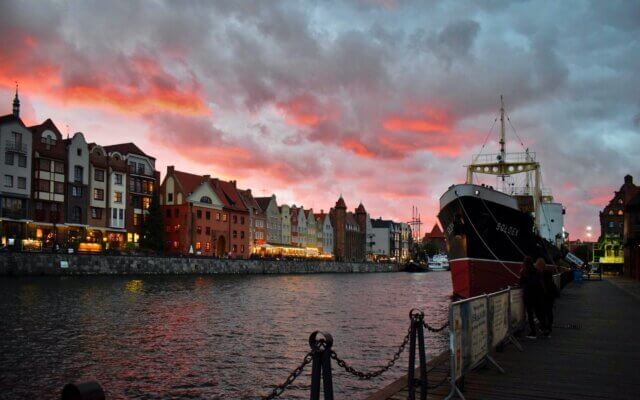ERASMUS+, Key action 1: training course
Venue: Ommen, Netherlands
Timeline of this training course:
- Online assignments,
- Seminar: 3—12 July 2024, Ommen, The Netherlands,
- Organization of local activities (in the Czech Republic): between July and September.
- Follow Up (Check-in Online meeting) – end of October 2024.
Czech team: 3 participants
Please read the info-pack a booklet with the Theatre of the Oppressed methodology.
Hosting organisation: Synchro Foundation
Project report:
In July 2024, the Netherlands was not only immersed in the excitement of the Euro football championship, where the Dutch team made it to the semifinals, but also in the training course “Through the Colours of the Oppressed.” A total of 37 participants from 11 European countries gathered to learn more about the methodology of the Theatre of the Oppressed.
So, what exactly is the Theatre of the Oppressed? It is a set of theatrical methods developed in the 1970s by Brazilian theatre director Augusto Boal. These methods involve the audience in the theatrical performance, allowing any spectator to become an actor, whether knowingly (e.g., in Forum Theatre) or unknowingly (e.g., in Invisible Theatre). The aim of the Theatre of the Oppressed is not only to highlight social issues faced by individuals or groups but also to actively engage citizens and work together with the audience to find solutions to these issues.
At the beginning of the course, we had the opportunity to become acquainted with all forms of the Theatre of the Oppressed, as Image, Invisible, Newspaper, Legislative or Forum theatre. However, we ultimately focused on two techniques: Forum Theatre and Newspaper Theatre. Using these two methods, we created theatrical scenes that we then reflected upon and analyzed in detail.
But it wasn’t just about theatre. It was also about meeting many interesting people, learning to juggle in our free time, or cheering on the Dutch football team in the square of Ommen, together with the other residents of this picturesque town. On behalf of the entire Czech team, I would also like to thank the instructors, Gabi, Cristina, and Agnieszka, for the perfect organization of the course. They provided us with a wealth of tools and opportunities to work on future projects within our organizations. I would also like to thank EYCB, the sending organization, for giving us the opportunity to participate in such a fantastic project.
For the Czech team
Zuzana D.
Local activities reports:
Author(s) and country: Czech republic: Marcela, Roma Monika
Aim: make children realize and work with emotions caused by the oppressing situation
Objectives: identify oppressing situations,identify emotions caused by them, identify boundries, use the methods of the Theatre of the Oppressed
Method: Images Theatre – Theatre of the Oppressed
Target group (brief description, age and size): 4-7 y.o.; theatre group
Setting: calm place, safe space, inside
Preparation time: 15 min.
Total duration: 1h 15
Step-by-step description:
| What | Why | How | Time |
| Introduction about us & our workshop | to tell kids who we are what we are doing here and what we are going to do here today together | Together with the children, sit in a circle on the floor, introduce yourselves and introduce today’s activity. Also ask the children if they could introduce themselves. | 5 min. |
| Dancing with moving objects | energize /have fun/ practise image theatre | Dance to the music, then the organizers will say “now we will dance like a turtle” and everyone will start dancing like a turtle. Later on, emotions will be added and we will dance like a “happy turtle”. And so on. | 5 min |
| add to three | energizer /ice breaker /get to know each other/ have fun/ distract before main activity/ practise Image theatre | The children will sit in a circle with us. The game is that they will go to the middle of the circle and I will use their body to represent a thing/object or even a situation. To the given thing in the middle of the circle, each child can add one thing to represent with their body. The child who wants to add an object to the scene will go to the middle of the circle and say what object/person/activity it represents. Then the other child will go and say and add another position to the situation. max three people in the circle, & whoever enters the circle first determines who stays in the circle. | 10 min. |
| debriefing after first activities | call down / slowly go to another activity | In a circle, we talk about how we liked the activity, how it made us feel, and slowly turn to a discussion about oppression/when something is unfair to us.
We will give kids examples of situations where we personally felt unfair (for example Marcela will say “I felt oppressed when someone eats my food and didn’t ask me”). We start to give examples of what emotions this evokes in us & how we could express these emotions with the help of theatre: aim is to become aware of emotions through theatre and to prepare for the next activity |
10 min. |
| Image theatre – magic galerie with moving pictures | Realizing emotions, oppression, how to act
To close the experience |
Divide the children into two 2 groups by dividing them into forks and knives.
Each group of children will have a joker (one of the organizers Ro and Marcela). Each organizer will present three situations to her group (now the groups work separately): 1) Someone ate my food and didn’t ask me 2) Someone beat me in the lunch queue 3) Someone took my favourite toy Each group will try to act out a short sketch of what the situation might look like. Kids will themselves (with our help) prepare 3 short scenarios which they will themself present in a “picture gallery” for the other groups. Each group will probably prepare two pictures of each situation: A) one depicting oppression (someone ate my food, took my toy…) B) an “ideal image” that depicts an ideal situation (I asked the person to give me back my toy and he gave it back) The process continues with a “gallery of our art” where each group shows their “art”. The children then present their two versions of the “oppression” and “ideal situation” images in the magic moving image gallery and the children who are in the audience can comment on these images and describe what they see and what has changed. We as organizers can also suggest some questions to start the discussion… “What has changed?” “How did the person feel before the change? How does he feel now?” “How do the other people who are part of the scene feel?”. |
30 min. |
| Reflection | close the process | We’re sitting in the circle. Ro pass to the children the Speaking Object that allows to speak only to a person who holds it. They answer the questions:
“How do you feel?”. “What did you lern today?” |
15 min. |
| Story of the man who escape prison | last game for closing the process with in playful way | Ro will tell the story of a man who escapes prison. The story will be in the style of “we wake up in the morning and quietly open the bars, then we run over the wall”. The children will join us in a pantomime of “jailbreak”. | |
| Total time: | 1h 15 |
Author(s) and country: Zuzana, Czech Republic
Aim: To increase awareness in our theatre group about the possible theatre techniques of the Theatre of the Oppressed and their connection to current topics.
Objective: To familiarize all participants with Forum Theatre and create at least one short scene that can be used as a basis for our future theatrical work.
Method: Imagine theatre (+ forum theatre)
Target group (brief description, age and size): Teenagers 14-18
Setting: Theatre Camp in Šlapanice
Preparation time: 30 minutes
Total duration: 2 hours
Step-by-step description:
| What | Why | How | Time |
| Introduction | To introduce the participants to the workshop’s objectives and to get to know the participants and understand their expectations for the workshop. | Briefly outline the goals, schedule, and expectations. Conduct a round of introductions where participants share their names and what they hope to gain from the workshop. | 10 min |
| Energizer | To become aware of the group and the space, and to tune into the group. | Walking around the space, when a clap is heard, participants make a statue based on a given theme (ruler, politician, homeless person, withered tree, envy, helplessness). | 10 min |
| Images | To become aware of the group and the space, and to tune into the theme and to each individual in the group. | Walking around the space, participants pair up with a different person each time. In pairs, they decide who will be A and who will be 1. A creates a statue based on a given theme (helplessness, injustice, oppression) and 1 then adds to the statue. After completing this, the group disperses and finds a new partner. | 15 min |
| Brainstorming | To generate ideas and foster collaborative thinking about the themes and techniques. | Moderated discussion about situations in our everyday lives that we consider unfair or unjust, aiming to find a common theme. | 15 min |
| Images theatre preparation | To prepare and rehearse scenes using the techniques of the Theatre of the Oppressed. | Creating groups of 5 people. Each group is tasked with collectively choosing one theme of oppression and creating 3 statues (living pictures) related to it. They then expand these by adding 2 more statues (one between the 1st and 2nd, and one between the 2nd and 3rd statues). | 30 min |
| Presentation | To showcase the prepared scenes to the group and receive feedback. | Groups show their images to each other. Each set of images is shown twice: the first time without any changes, the second time, any audience member can come up and replace one of the roles (one of the statues). The other actors (statues) then react to the change in the situation by altering their own poses and positions. | 20 |
| Reflexion + ending | To reflect on the experiences and insights gained during the workshop, and to provide closure. | Lead a discussion on what participants learned and how they felt, then formally close the workshop. | 20 |
| Total time: | 120 min |
Suggestions after the first try of the workshop:
The program eventually took place at a camp where there were 13 teenagers. More time is needed for the presentation. In the same way, more time would be useful for the introduction. The discussion needs to be moderated. Since the participants had experience in drama education, the creation of sculptures was simple, but it could be more difficult for beginners. Some participants used the masks we had available at the camp, which sometimes led to interesting interpretations.


